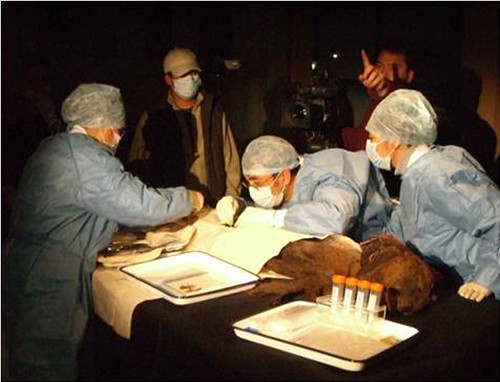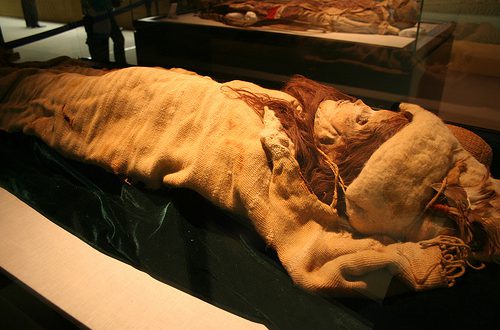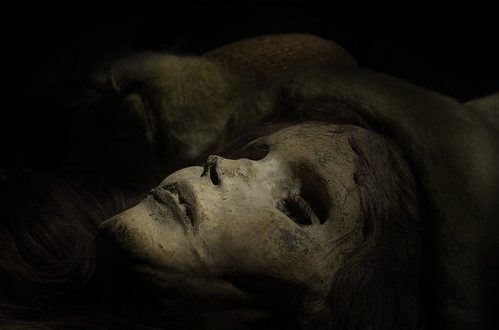 Calling all Chinese males with the last name Cao. Apparently, you might be the key to resolving Chinas latest archaeological controversy.
Calling all Chinese males with the last name Cao. Apparently, you might be the key to resolving Chinas latest archaeological controversy.
Researchers at Shanghais Fudan University are collecting DNA samples from such people with the hope that they can help prove whether or not a recently discovered tomb belongs to a Chinese warlord.
Made public in December, the tomb is believed to belong to Cao Cao, a legendary figure who lived during Chinas famed Three Kingdoms period (184 to 280). A corpse found at the site is the alleged remains of the ancient ruler.
While archaeologists claim the find is genuine, the discovery has been met with skepticism from others experts and much of the Chinese populace.
Wanting to lift the doubt surrounding the archaeological find, researchers at Fudan University announced last week that they would seek to perform a DNA test. This would involve taking the DNA of the corpse found at the site, and trying to see if it matched with the DNA of Cao Caos living descendants.
Li Hui of Fudan University is leading the research team. In an interview, Li said it was the schools own choice to take on this project.
Cao Cao is a very famous person, he has many stories surrounding him and so everyone has been interested in this discovery, Li said. But now there is some doubt about the authenticity of the tomb. A DNA test can resolve this.
One of the major roadblocks, however, is that no one can say for sure who is a real descendant of the famous warlord. Cao Cao lived almost 1,800 years ago after all, and no official records have been made tracing the figures genealogy.
To see if a DNA test is even feasible, Li and his team are currently working to find Cao Caos living descendents. Theyve asked for volunteers across the country who have the surname of Cao or Xiahou, the original surname Cao Caos family once went by. Volunteers also must be male since the DNA test will trace Cao Caos lineage by looking at a Y-chromosome mutation found in men.
But even as they aim to rid the doubt regarding the Cao Cao tomb find, the researchers have already attracted their own skepticism from the Chinese public. Comments on the Internet include those who believe its impossible to find the living descendants to those who think Fudan University is just boasting.
People dont believe that DNA testing can be done. But thats wrong, Li said. We have been doing this type of work for decades now.
Some of Lis previous research work includes looking at the genetic foundations of the modern Chinese people. This has involved tracing the DNA back to African lineages as well as to different ethnic populations in East Asia. In 2007, Fudan University also conducted DNA testing on ancient mummies found in Xinjiang to determine their ethnic origin.
Li added that if he and other researchers can do DNA testing for prehistoric remains, then tracing the lineage for a 1,800 year old corpse should be possible.
The project aims to collect the DNA of 600 people. But Li said theyve already met about 10 percent of that goal. The hope is that they can find the common Y chromosome marker to Cao Caos lineage.
So far, the results show the presence of two main Y chromosome markers, one among volunteers that have been coming from central China, the other from the eastern portion of the country.
Li estimates that it will take another 2 months before they finish collecting the DNA samples. He added that volunteers have been calling the school and scheduling visits. The research team also plans to visit areas likely to have real life descendants, such as Anhui province, where Cao Cao was born.
Even if the DNA is collected, the research team doesnt know if theyll be granted access to Cao Caos alleged skeleton remains, which are held in Henan province. Li said an official there told him they have yet to discuss the issue, but plan to.
Still, one other problem remains. If a DNA test on the bones is carried out and turns out to be a success, one could only say that the discovered corpse has the DNA of someone belonging to the Cao Cao family, but not that of Cao Cao himself.
To Li, this would be enough to help put the controversy to rest.
This tomb is a kings tomb. Its the tomb of an emperor. Not just anyone will be buried in a tomb like this, he said. If the body is found to belong to the Cao family, then the possibility of it belonging to Cao Cao is much higher.





